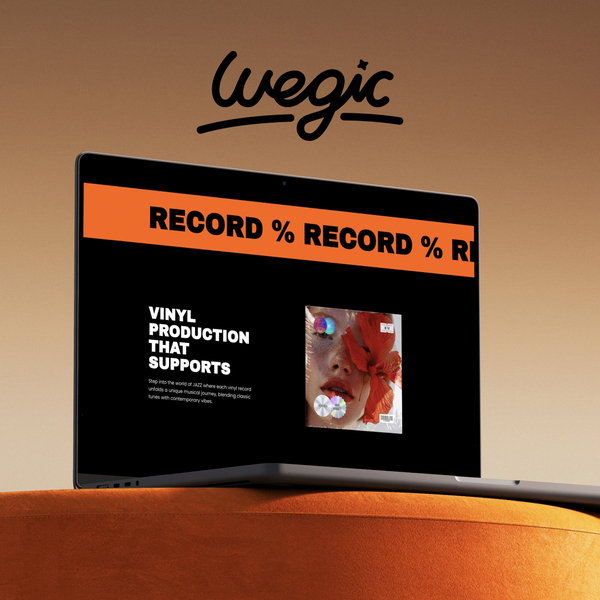Create Your Own Website Tips and Tricks
The Ultimate Guide to Create Your Own Website
Create Your Own Website
Web development is an ever-evolving field that plays a crucial role in building and maintaining websites. In today’s digital age, having a strong online presence is essential for businesses and individuals alike. From e-commerce websites to personal blogs, web development is a key component in creating functional and visually appealing websites. In this article, we will explore the world of web development and discuss the various technologies and tools used in the process.

A Beginner’s Guide to Create Your Own Website
Create Your Own Website
Wix
Wix is a popular website builder that offers a wide range of features and customization options at an affordable price. With Wix, you can choose from hundreds of templates to create a website that fits your needs and style. The drag-and-drop editor makes it easy to customize your site, and the platform also offers a variety of apps and integrations to help you add functionality to your website.
One of the best things about Wix is that it offers a free plan that allows you to create a basic website with Wix branding. If you want to remove the branding and use your own domain name, you can upgrade to one of Wix’s premium plans, which start at just $14 per month. With prices like these, Wix is definitely one of the most affordable website builders on the market.
Weebly
Weebly is another popular website builder that is known for its ease of use and affordability. Like Wix, Weebly offers a drag-and-drop editor that makes it easy to create a professional-looking website without any coding knowledge. The platform also offers a variety of templates to choose from, as well as features like e-commerce functionality and SEO tools.
Weebly offers a free plan that allows you to create a basic website with Weebly branding. If you want to remove the branding and use your own domain name, you can upgrade to one of Weebly’s premium plans, which start at just $9 per month. With its low prices and user-friendly interface, Weebly is a great option for those looking for an affordable website builder.
Squarespace
Squarespace is a website builder that is known for its beautiful design templates and customizable options. The platform offers a range of features, including e-commerce functionality, blogging capabilities, and analytics tools. Squarespace is also known for its excellent customer support, making it a great option for those who may need assistance along the way.
Squarespace does not offer a free plan, but its pricing is still relatively affordable, with plans starting at $12 per month. While this may be slightly higher than some other website builders, Squarespace’s beautiful design templates and advanced features make it a worthwhile investment for those looking to create a professional-looking website.
WordPress.com
WordPress.com is a popular website builder that is based on the open-source WordPress platform. While WordPress.com may not offer as many customization options as self-hosted WordPress sites, it is still a great option for those looking for an affordable and user-friendly website builder. WordPress.com offers a range of features, including blogging capabilities, e-commerce functionality, and customizable templates.
WordPress.com offers a free plan that allows you to create a basic website with WordPress branding. If you want to remove the branding and use your own domain name, you can upgrade to one of WordPress.com’s premium plans, which start at just $4 per month. With its low prices and advanced features, WordPress.com is a great option for those looking to create a professional website on a budget.
1. Type of Website
The type of website you want to build will have a significant impact on the cost. There are different types of websites, such as informational websites, e-commerce websites, portfolio websites, and more. Each type of website has its own unique requirements and features that can influence the overall cost of development. For example, an e-commerce website with features like online payment integration and inventory management will typically cost more to develop than a simple informational website.
2. Design
The design of a website plays a crucial role in its overall success. A well-designed website not only enhances the user experience but also reflects the brand’s identity and values. The cost of website design can vary depending on the complexity of the design, the number of pages, and the level of customization required. Custom-designed websites tend to cost more than using pre-made templates, but they offer a unique and tailored design that sets you apart from competitors.
3. Development
The development phase of a website involves turning the design into a functional website. This includes coding, testing, and optimizing the website for performance. The cost of development can vary based on various factors such as the technology stack used, the number of features and functionalities, and the level of customization required. Hiring skilled developers and programmers can also impact the overall cost of website development.
4. Content Management System (CMS)
A Content Management System (CMS) is a software that enables users to manage and update the content of their website without the need for technical expertise. Popular CMS platforms like WordPress, Drupal, and Joomla offer a range of features and customization options to build and maintain a website. The cost of a CMS can vary depending on the platform chosen and any additional plugins or extensions required for specific functionalities.
5. Domain and Hosting
Every website requires a domain name (e.g., www.yourwebsite.com) and web hosting to be accessible on the internet. The cost of a domain name can range from a few dollars to hundreds of dollars annually, depending on the domain extension and availability. Web hosting services also vary in price based on factors like storage space, bandwidth, security features, and customer support. It is essential to choose a reliable hosting provider that meets your website’s needs while staying within your budget.
6. Maintenance and Updates
Once your website is live, it will require ongoing maintenance and updates to ensure optimal performance and security. Regular updates to the CMS, plugins, and other software components are essential to protect against security threats and keep the website running smoothly. The cost of maintenance can vary depending on the complexity of the website, the level of support required, and any additional services like backups and security monitoring.
7. Additional Features and Functionality
Depending on your website’s goals and objectives, you may require additional features and functionality to enhance the user experience and achieve your business goals. These features can include social media integration, SEO optimization, email marketing tools, contact forms, and more. The cost of integrating these features will vary depending on the complexity and customization required.

The Benefits of Create Your Own Website
Create Your Own Website
By regularly auditing their SEO techniques, businesses can stay ahead of the curve and ensure that their website is optimized for search engines and users alike. By identifying and fixing any issues that may be hindering their SEO efforts, businesses can improve their visibility, ranking, and ultimately, drive more traffic and conversions to their website.


